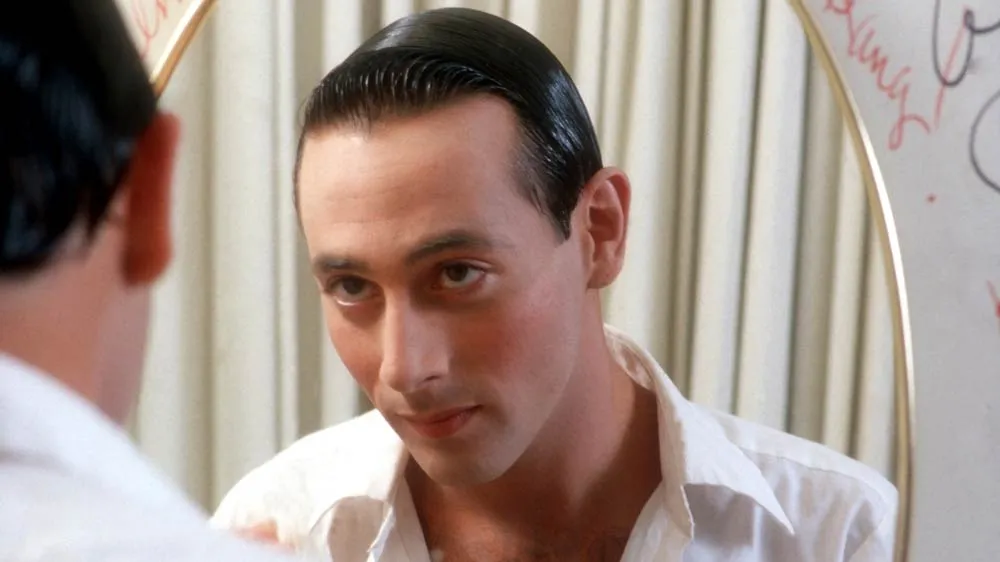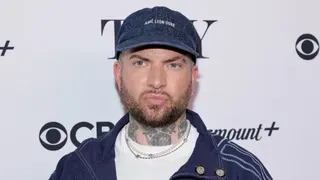January 7, 2014
Laryssa Husiak's "She Is King" Looks at BJK Legacy
Winnie McCroy READ TIME: 5 MIN.
On the heels of the 40th anniversary of the legendary Battle of the Sexes, playwright Laryssa Husiak brings tennis legend and feminist icon Billie Jean King to life in "She Is King," a play that recaps three television interviews at seminal points in King's life, at the height of her career in 1973 and just before and after she was outed as a lesbian in 1981. With King set to serve as a representative at the Sochi Olympics in Russia, the time has never been better to find out why King is feminist royalty.
"I was reading a book about tennis two years ago when I came across the first interview we're portraying, kind of by chance," Husiak told EDGE in a recent interview. "It's a random cable access show from '73, and the first question is 'Are you an angry woman?' I was so struck by the question and how she responded: so clearly and with such confidence about gender and equality and feminism in a way that sounded so contemporary, she could be talking today. She was such a visionary, and that's what really drew me to her."
The play uses archival footage to reenact these three television interviews King did at pivotal moments in her career and captures her big personality as she manages the pressures of unprecedented success as a woman in a field long-dominated by men.
The TV appearances that comprise the play find King speaking with Barbara Walters, pop singer Toni Tennille and James Day, host of a CUNY-TV cable talk show, "Day at Night." Husiak portrays King, Louisa Bradshaw plays Walters and Tennille and Joshua William Gelb plays Day and Larry King, Billie Jean's husband.
"Once I found that interview, I quickly became obsessed with finding others," said Husiak. "The second interview with Toni Tennille from Captain and Tennille was such a contrast to the first interview. Tennille had a bright, bubbly personality, and was very feminine. It was an interesting contrast to the first, which was itself set up like The Battle of the Sexes, with King pitted against an aggressive, older man. The second is two women with very different styles of feminism. The third interview was with King and her husband and Barbara Walters, and was much harder to find. I contacted ABC and they sent me a screener from archives."
When King won the legendary Battle of the Sexes against Bobby Riggs in September 1973, she was the number one women's tennis player, at the height of her career -- and conducting a secret lesbian romance with Marilyn Barnett, her former hairdresser and secretary.
Eight years later in 1981, Barnett threatened to sue King for palimony for half the money the star made during their seven-year affair. Instead, King held a press conference, admitting that she had an affair and essentially coming out as lesbian. Husiak said that it was amazing, given the views of homosexuality at the time, that King faced this scandal head-on.
"She didn't want to come out of the closet; she still didn't identify as a lesbian and she was still in her marriage, but she had said in interviews that she wanted a divorce for a long time and felt she just needed to deal with it publicly, and I think that says a lot," said Husiak. "After that she lost a lot of her endorsements, right before she was about to retire from pro tennis. It was such a turning point in her career; it was very traumatic for her. Now, looking back to see that she is going to the Olympics as a delegate, it's amazing how it's evolved."
"She Is King" examines the impact of media on gender, sexuality and celebrity, but Husiak admits that it may just pose more questions about how media shapes identity, particularly celebrity identity. But regardless of the destination, Husiak is enjoying the journey, as creating the play has allowed her to tap into the powerful relationship King had with the media.
Joining the professional actors in the "She Is King" company are a group of middle school students aged 11 to 13, who serve as the production's 'run crew' (or 'ball kids'), after concluding workshop training and instruction in a variety of topics relevant to the play, including the history of women's tennis.
Citing King's own efforts on behalf of equal rights regardless of gender, race, class, age and sexuality, Husiak sees youth involvement in the production as an opportunity to demonstrate the importance of equality and social justice for all people, and also notes that it was as a pre-teen that King herself first discovered her own passion for tennis.
"Billie Jean talks about her discovery and love of tennis at age 11 as a turning point in her life," said Husiak. "Since that time, she was dedicated to playing tennis and fighting for equality. And then as she got older she began working with youth as a mentor, and that's a big part of who she is now."
Husiak said that although 11 is a young age, it's when kids begin finding things in the world that resonate with them, saying, "we thought it would be interesting to work with kids around that age, and our hope is that if we take it on tour, we can work with local kids in different communities."
In 2009, King was presented with the Presidential Medal of Freedom. Although she dealt with sexism and homophobia throughout her career, Husiak points to her final profiled interview with Walters as proof that it was all worth it.
"King says that if her fight for equality supported other people's lifestyles, if it helps homosexuals and some good comes of it, then good," said Husiak. "It moved things forward. Sometimes that's what it takes."
Now King is headed to the Sochi Olympics, which can be viewed as either a savvy move to show America's value of diversity in the face of Russia's Anti-Gay Propaganda Law, or a giant "fuck you" to Putin, � la the parody Kate McKinnon recently delivered on SNL's "Weekend Update."
"I think it's both," said Husiak with a chuckle. "I think she is a representative but also that it's important to say directly what the U.S. thinks about the treatment of LGBT people in Russia. I think it's great she's going, because it does send a strong message that LGBTs can be supported more by talking directly about these issues."
"She is King" runs Jan 10-26 at Incubator Arts Project inside St. Mark's Church, 131 E. 10 St. in New York City. For information or tickets, call 866-811-4111 or online at incubatorarts.org.
Winnie McCroy is the Women on the EDGE Editor, HIV/Health Editor, and Assistant Entertainment Editor for EDGE Media Network, handling all women's news, HIV health stories and theater reviews throughout the U.S. She has contributed to other publications, including The Village Voice, Gay City News, Chelsea Now and The Advocate, and lives in Brooklyn, New York.





